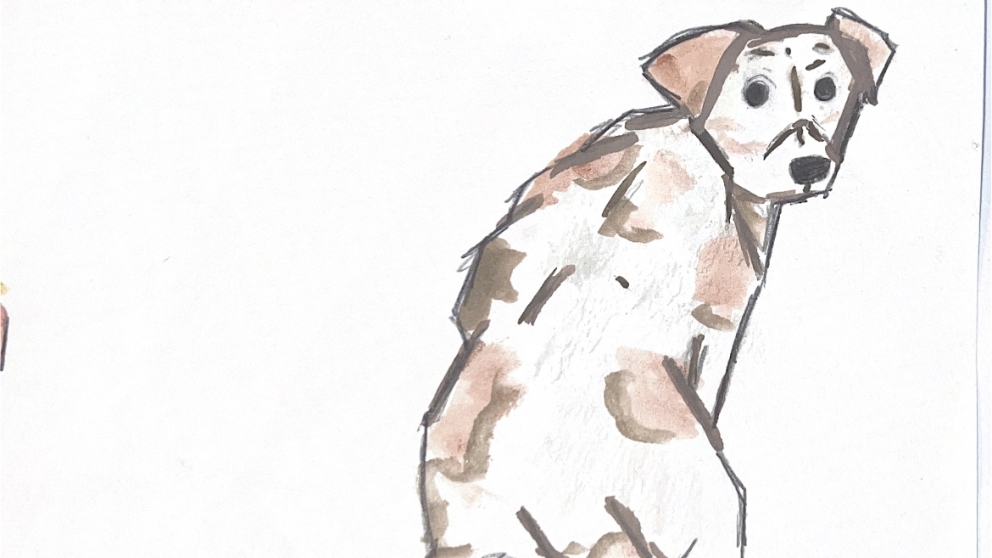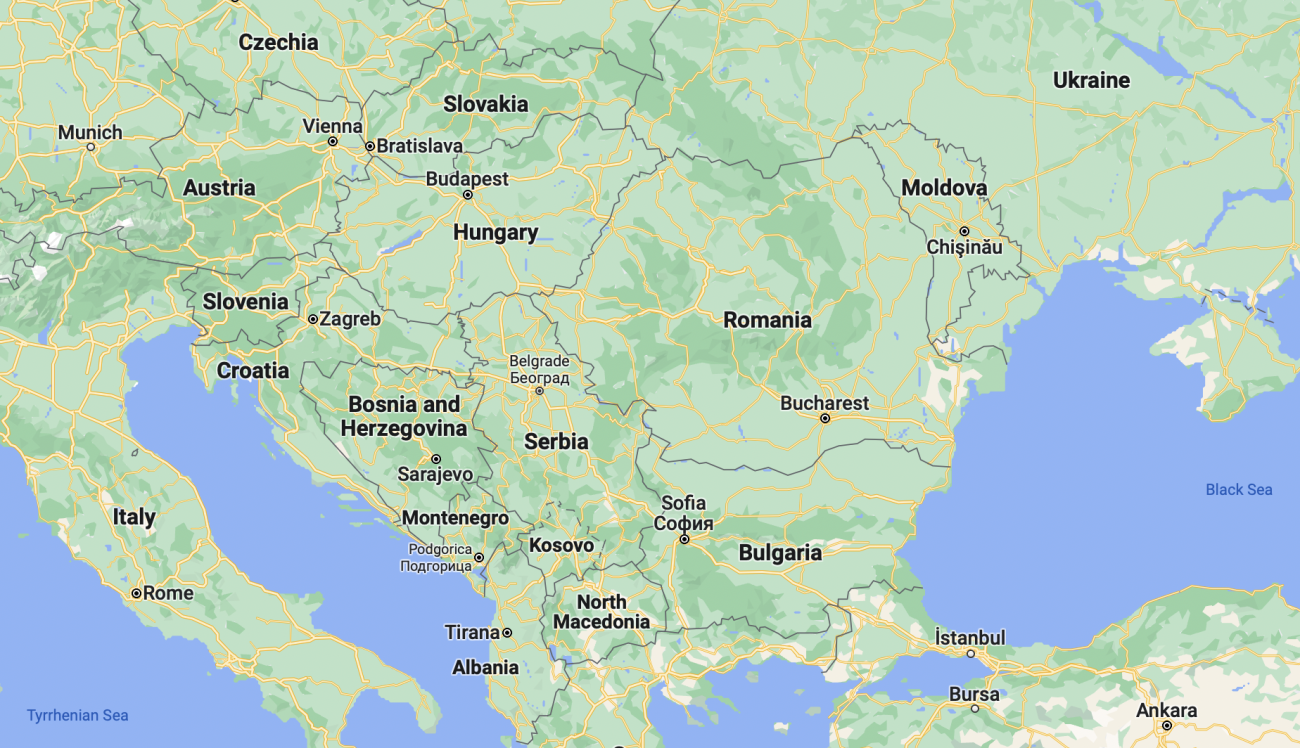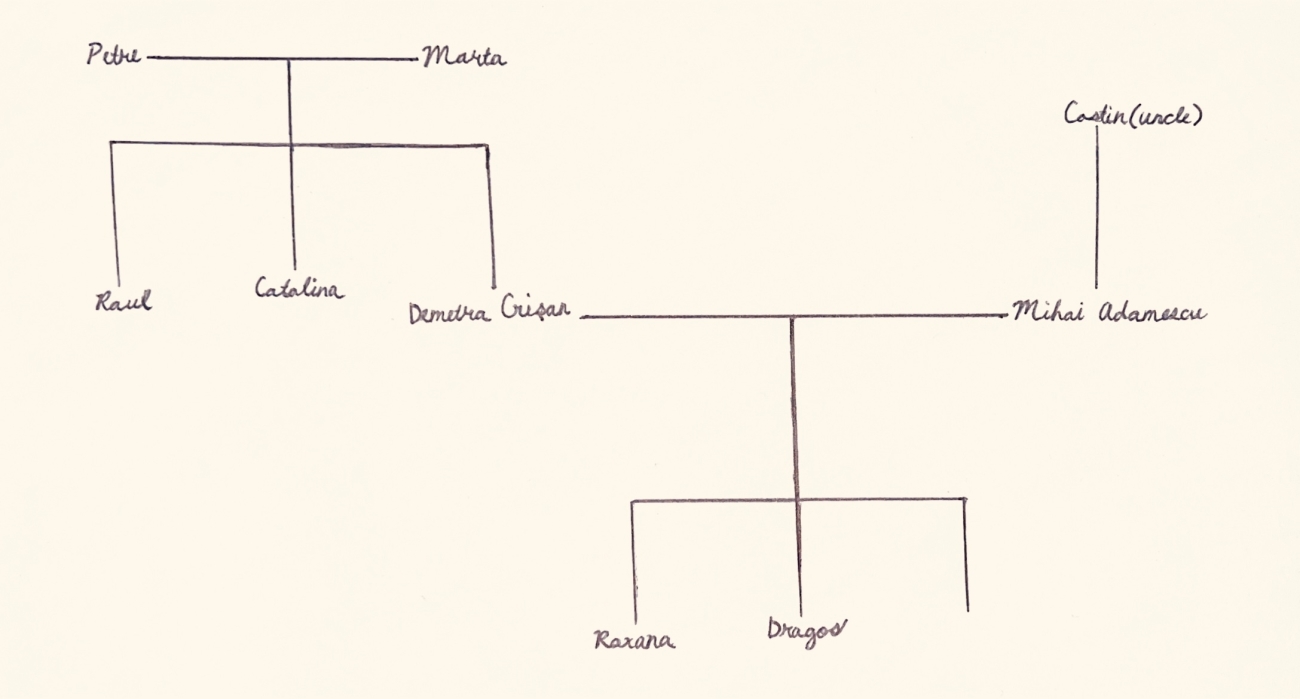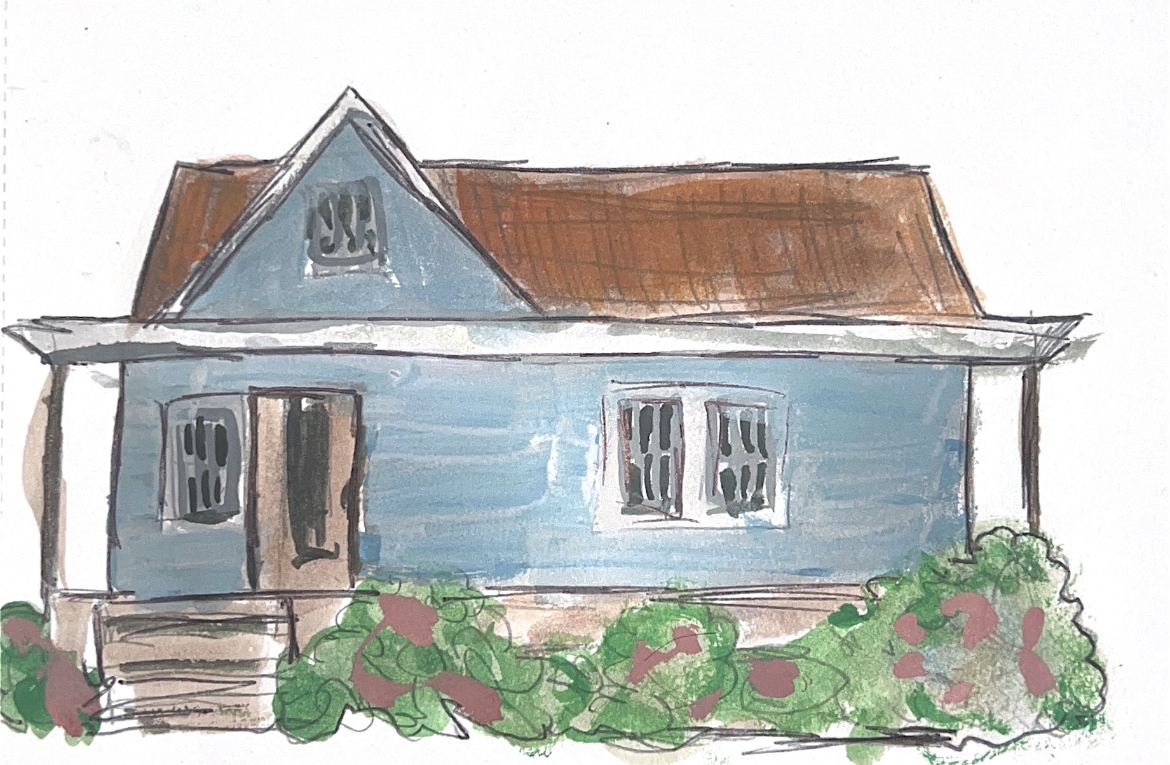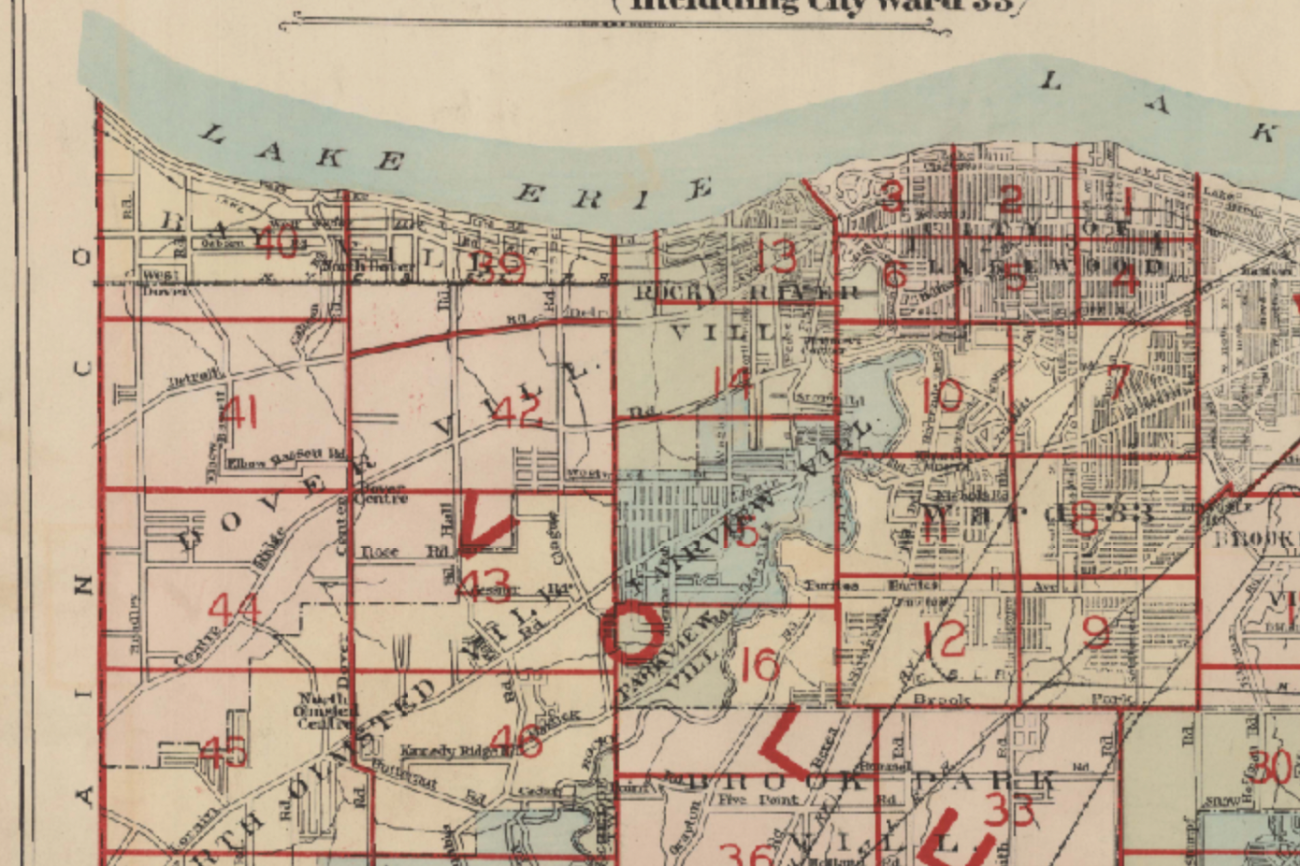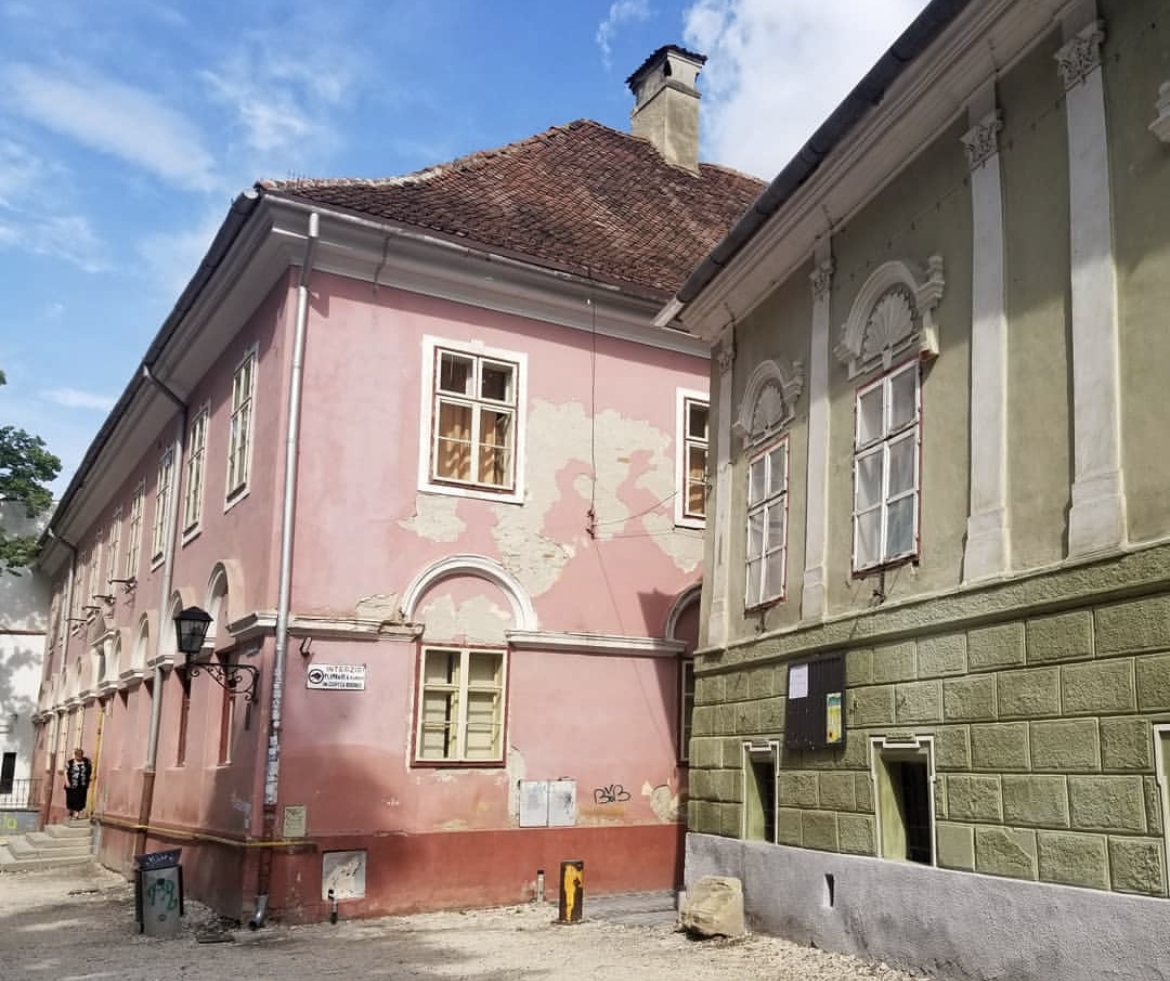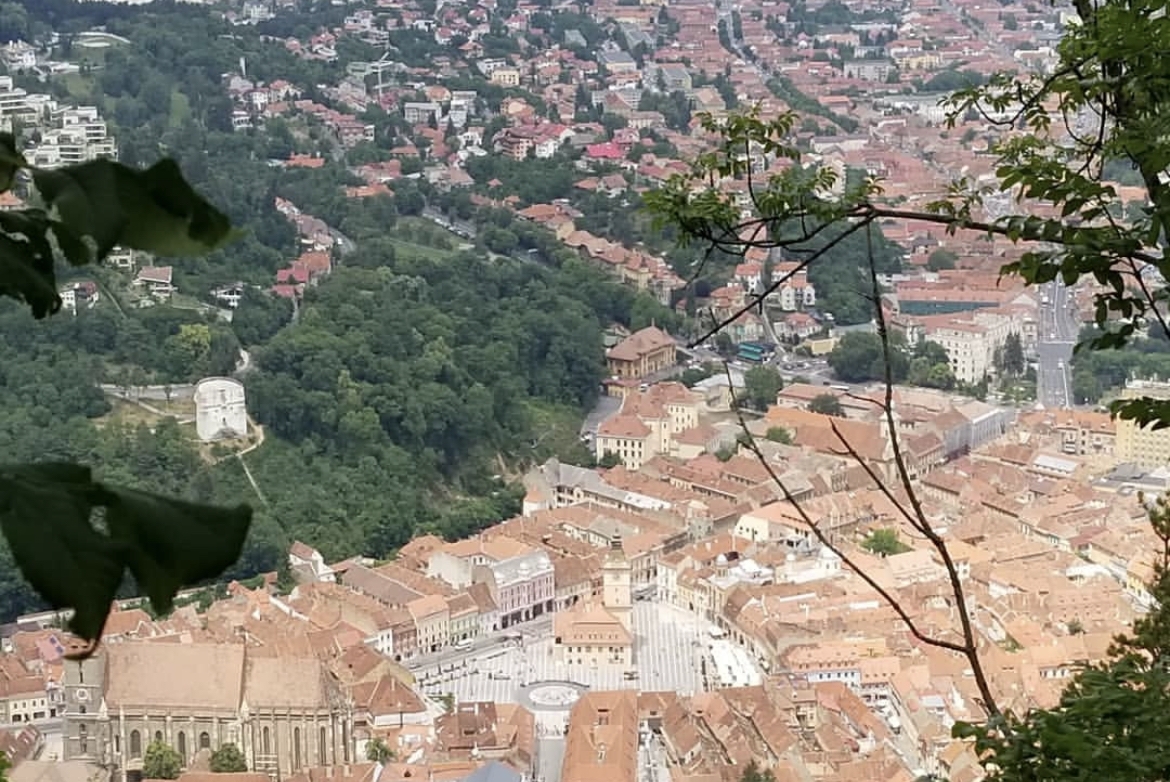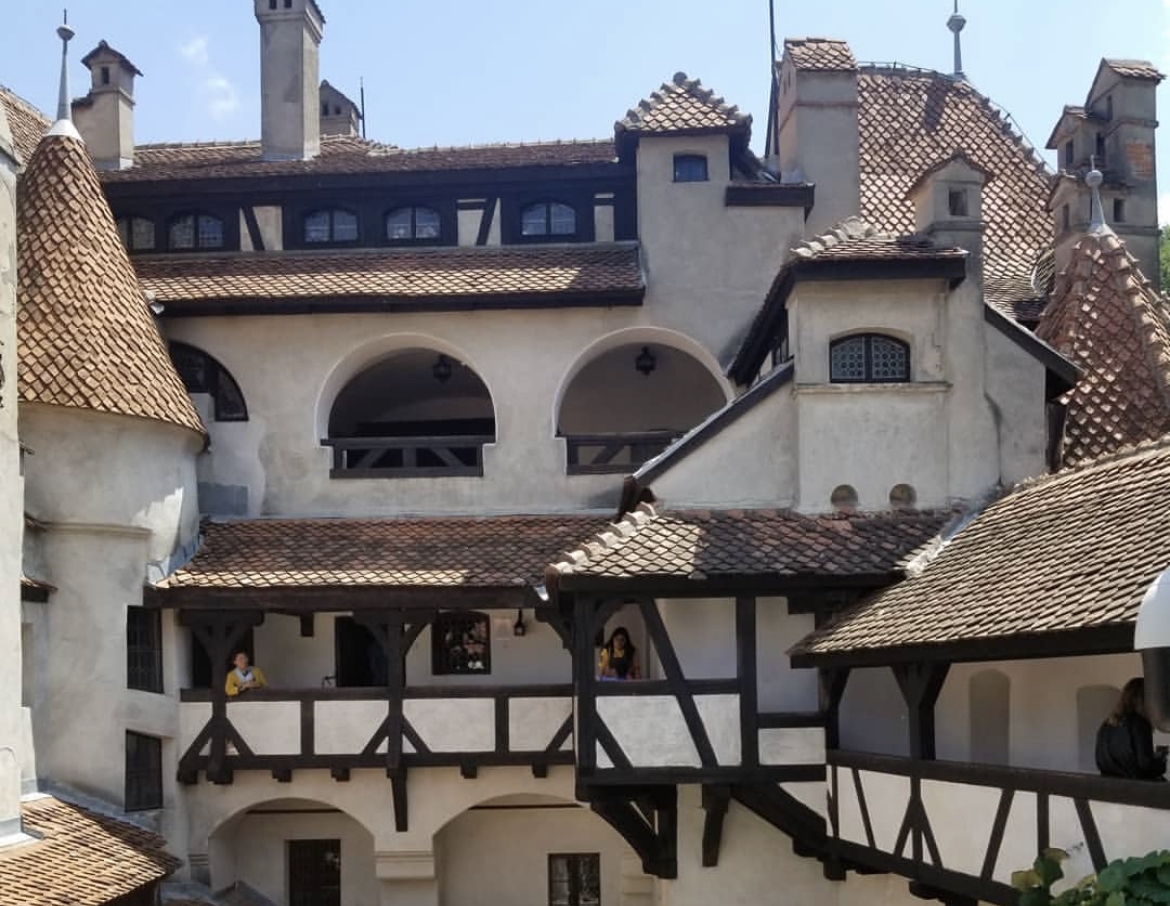Lost Dog
June 1993
Demetra Adamescu was sitting on the plastic covering her white couch in the one-floor house she and her husband, Mihai, moved into six months ago. She did not intend to take off this wrapping, ever, because she currently had a four-year-old daughter, Roxana, and almost two-year-old son, Dragos. Her fingertips skidded across its smooth surface. She tried to think correctly in English, a language she did not like but had learned since she and Mihai had decided they were going to move to the United States. Of course, saying “she and Mihai decided” was a bit loose. Mihai had the idea and Demetra begrudgingly went along with it because she loved Mihai and they both thought that a future in America for their children was better than the one they could provide in Romania.
So, when he found a job in Westlake, Ohio, and they were packing their things, she hadn’t cried even as she left her home, her loved ones, her whole life. Every day she missed her family. Contacting them, especially calling, cost so much money; Demetra had decided she shouldn’t. And yet, in these few moments to herself, Demetra found her eyes wandering to their phone.
She could hear her father’s voice as he would answer, “Alo?Cine este la telefon, vă rog?”
Alo?Cine este la telefon, vă rog? (Ah-low Si-ney est-ey la telefon, va rogue): Hi, who is this on the phone, please?
Tata: dad/father
“It’s Demetra, Tata.” She would speak English as much as she could and her father, Petre, would tell her that she spoke English so well he thought a random American girl was calling him, not his daughter. And even though Demetra would know it was a lie, because the neighbors and cashiers and everyone she ever met in America made a point of commenting on the way she spoke, she would laugh and smile and ask to talk to her mother. They’d talk about Roxana and how she had grown into a stubborn little girl who refused to eat her food, especially vegetables, and made fun of her little brother’s face because, “He’s so ugly, mama.” Her mother would laugh and say that little Dragos did have his grandfather’s face, so maybe Roxana was right, and Demetra’s father would inaudibly protest. Her mother would ask if Demetra was okay in America, if she had made friends, and if she was eating because she was already too skinny.
Demetra would lie and say that she loved it and was very happy. “I miss you, Mama.” She would never say how much because it hurt more to admit.
But she and Mihai needed to save money, so instead she just stared at the phone and its drooping coiled cord until she heard Mihai’s voice as he peeked his head inside. “Demetra, come come, it so nice outside, why you sit in here? Come out with kids and me.”
“Ok, ok, I’ll come,” she said, standing up, feeling a little dizzy as she did because she had been feeling unwell that day. Before she left the room, the phone rang and she stopped, looking back at it. Mihai stepped forward to answer it, but before he could Demetra waved him off, “No no I’ll get.”
“Demetra-”
“Your English too bad, Mihai. I will answer it,” said Demetra, picking it up. Mihai sighed and went back outside.
“Hello, this is the Adamescu home,” said Demetra, trying her best to pronounce each word perfectly, and speaking robotically as a result. “A dog? No sorry, I no see- I have not seen a dog,” said Demetra, she turned to the window. “But I will watch for…one, what your number- what is your number?”
She pulled the phone from her ear and stared at it, the dial tone ringing out. She set it down, taking a deep breath and feeling a pit in her stomach. It was getting close to dinnertime, but she cared more about the phone call. Was it that they couldn’t understand what she’d said, or that they simply did not care to take the time to continue talking to her? She didn’t know. All she knew was something was suddenly was important to her: finding that dog.
“Demetra!” shouted Mihai with a laugh.
In their backyard, she saw the collection of half blooming flowers she and Mihai had planted when they first moved in. Again, “she and Mihai” was a loose term. He did all the work and at the end of it smiled and put a hand to Demetra’s shoulder, dirt still coated on it, and said, “Look so beautiful.” Although, there was only a pile of dirt with seeds beneath that she couldn’t see.
Mihai was a happy man. So, he was excited to start a new life. He didn’t have much family back in Romania, just an uncle, Costin, who had raised him because his mother had died when he was very young. He had never been told what happened to his father. He loved Demetra and loved his children even more. She tried to help him with his English, which he spoke very poorly, he was told. But his job was mostly numbers, so his coworkers didn’t care as much as they might’ve. Sometimes he could hear their whispers. Although he didn’t always understand, he knew they didn’t like him very much because he spoke poorly, smiled too much for Americans, and because of his last name they thought he was a thief, communist, or both.
Languages didn’t come easy to him. Words didn’t, really. He had always been the kind of person that spoke through actions because he didn’t quite know how to express himself otherwise. This was why he had begun to put a little money aside every few weeks, not much, so that eventually Demetra could call her family on the phone and not worry about the cost. He knew she missed them very much, she didn’t have to tell him that. They were nice people, and he felt guilty for making them move. He was supposed to be the head of the family, the provider, and in some respects he was. He worked the job. He made enough money to support them. He tried his best to be a good father and a good husband, though he often felt like he had no idea how to go about it.
He saw himself as a child trying to learn how to swim; sometimes his legs grew tired and he began to drown for a moment, overwhelmed by the water.
One such moment had happened when they first arrived in Westlake. After finding a job here, Mihai was thrilled. He had done his research. He knew that Westlake and Cleveland were places where Romanians had gone during and after WW1 and WW2.
A case study on Romanians immigrating to Cleveland and the communities formed thereafter, by Case Western Reserve University:
https://case.edu/ech/articles/r/romanians
He had told Demetra how living there would be okay. Even though they were in the U.S there would surely be people and things from home, remnants of their culture that would make this transition easier. But when they arrived, they found that this Romanian American community had faded away. The expectation of a welcome with open arms had been replaced by shut doors and plastic pink lawn flamingos.
“Look, Dragos, he walks fast!” smiled Mihai.
Dragos ran around his older sister, who screamed at him and stomped her feet because she didn’t want to play with him. He had knocked down her Barbie. Now, she had to clean the dirt off.
“We have to look for dog,” said Demetra, turning to her husband.
“Dog?” asked Mihai.
“Neighbors lost dog. We find.”
“Mama, he made me drop my Barbie!” cried Roxana. Demetra sighed and went over, picking up Dragos to separate him from his sister.
“It ok Roxana, go inside and wash her off, she will be fine,” said Demetra. Roxana stared for a moment, Barbie doll in hand, then let out an annoyed scream and ran inside. Demetra looked up to the sky as if asking, why me?
“We look for dog now?” asked Mihai.
“Yes now,” said Demetra, dusting the dirt off Dragos.
“What about kids?”
“We bring with.”
Roxana finished washing her Barbie in the kitchen sink and stepped down from the polka dotted blue and green stool under it. She set it gently on the table to dry, fixing its light blonde hair and wiping a dot of water away from its bright blue eyes. She often wondered why Barbie looked like that. Roxana had only known one blonde friend back home, and her father was German. All the other little girls looked like Roxana, each smaller versions of their mothers, with dark thick hair and dark brown eyes and olive skin. Though some were pale, like Roxana’s cousin, Ana. Roxana hadn’t met many little girls in Ohio because she didn’t start school until the next year. But the ones she saw walking or biking through the neighborhood usually looked more like Barbie than like her. Sometimes they had brown hair or even brown eyes, but it was never quite as dark as Roxana’s, and it was usually very straight and pretty like Barbie’s. Roxana didn’t look entirely different from the girls, but she felt set apart by something. She figured it was the same thing that made it hard for people to say their last name or understand what her father was saying.
Roxana walked up to the window and stared out at their flat street. She saw other children’s bikes in their front lawns, brightly colored with baskets on the front. She wanted one just like it and thought she might ask as much from Moşul this year for Christmas.
Moşul (moe-shul):Romanian Santa Claus
She hoped he came to America; she knew it was pretty far from Romania so maybe he wouldn’t make it in the cold.
“Roxana come, we walk!” Mihai was opening the front door, which Demetra had already walked out of.
“Why tata?” asked Roxana.
“We look for dog,” said Mihai.
Roxana smiled, rushing to the door, thinking “We look for dog” meant that they were getting a dog of their own. Dragos squirmed in his mother’s arms as she walked quickly down the road, peering down every path. She was convinced that she’d easily find the lost dog.
“Demetra, how you find dog? What it look like?” asked Mihai.
“Like dog,” said Demetra, rolling her eyes and shrugging.
“How you find if you no know what look like?” said Mihai.
“I find!” Demetra waved him off.
“What are we going to name it, tata?” asked Roxana, smiling.
“No. No, dog not for us, Roxana,” said Mihai.
“Then why are we looking for it?” asked Roxana.
“We-” said Mihai, quickly cut off by the tantrum Dragos was throwing in his mother’s arms.
“Tsk, Mihai, take him, I cannot deal,” said Demetra, handing him off.
Mihai took him, “Demetra-”
Demetra started to walk off even more quickly, searching for the dog now on her own. Mihai shouted after her, but soon gave up as she marched farther down the street. Roxana pestered her father with questions about the dog that he didn’t know how to answer and didn’t care to as Dragos screamed and squirmed in his arms.
Demetra turned the corner of the street, looking down the next row of identical houses with the same flowers in their gardens and grass cut to a uniform length. They were all painted various complementary colors regulated by a committee of the elderly in the community. Ohio looked so different from Romania with everything in rows, so nicely put together with no one outside to appreciate it. She remembered being a child, cobblestone paths and chipped paint on old homes. She remembered the air, so different from the summer warmth here.
Above all else she remembered her parent’s smiles, the laugh of her little sister, the simplicity of speaking her first language. It was not a perfect place or memory; and yet, as she looked through her town with its painted fences and mailboxes with little American flags on them, she wondered if perfect was actually any better.
She kept searching, looking for a tail or a collar or even a piece of shit. She knew Mihai was right. Demetra didn’t know what the dog looked like. Regardless, she kept looking. She felt like if she found this dog, all would be well. She would never hear the dial tone ring out again from a neighbor, she would not see the sarmale she had offered them in the trash, they would not whisper and laugh when they walked by her house and saw her with her children outside.
The history of Sarmale as a food and its origins in Romania & Turkey:
https://en.wikipedia.org/wiki/Sarma_(food)
A recipe for Romanian Sarmale:
https://www.jocooks.com/recipes/sarmale/
Pronunciation: Sar-mal-ey
She knew it was ridiculous, but she was determined to do it anyway. Her breathing got faster, and her eyes began to tear up, not aiding her search any more than the quickly setting sun. She stopped, resting her hand on a white picket fence and taking deep breaths. She felt nauseous.
“Demetra!” shouted Mihai. He had finally caught up and was running, holding Roxana’s hand and still holding Dragos over his shoulder. Demetra didn’t look back as he called her name. Instead she looked up at the sky, trying to compose herself.
“It’s get dark, we go home please,” said Mihai, stopping next to her. Demetra still didn’t say anything, her back to her family. Mihai stared with a sympathetic look, seeming to understand what was going on. He set down Dragos, who had stopped screaming for the moment, next to his sister. He placed a hand on Demetra’s shoulder gently. “Home, please?”
Demetra nodded and turned back to Mihai who hugged her, placing a hand on the back of her head to comfort her, “I look for dog tomorrow, yes?”
She nodded.
“Dragos, stop it!” said Roxana. Demetra and Mihai both looked over to Roxana, who was trying to pull her little brother away from jumping in a puddle of mud by the sidewalk.
“Oh, Dragos!” said Demetra, going over and picking him up, “Roxana, why you let?”
“He did it, mama, it wasn’t my fault,” pleaded Roxana.
“Ai Ai alright Mama, it ok we wash him, he be clean,” said Mihai walking over. Demetra sighed, mud on her clothes and Dragos laughing in her arms.
Once they were home, Demetra turned on the bathtub. Dragos began to throw a tantrum because, like most children his age, he hated being clean.
Mihai set him in the bathtub laughing, “Oh my boy, Fi cuminte.”
Fi cuminte (fee-coo-mean-tey): be good/behave yourself
“Mihai, English,” said Demetra, squeezing soap into her hand and lathering it.
Mihai sighed, “What it is again?”
“Be-have,” said Demetra slowly. She began to wash the crying Dragos.
“Bee-halve,” said Mihai, holding Dragos’s shoulders. He just cried anyway.
Roxana, who was in her own room, could hear her little brother screaming in the other room and water splashing in the bath. Dragos was always making too much noise and causing a mess. Her parents were always taking care of him and expected Roxana to do the same.
One time he had been playing outside and scraped his knee. He was wailing over a cut that was his own fault, but when Demetra rushed outside and picked him up she looked at Roxana and told her, “Why you didn’t watch him, Roxana? He’s too little, you have to keep safe!” She was too little to go to school or have any friends, but she was old enough to watch over Dragos. So, when he got hurt, dirty, or broke something, it was her fault. A little sister would be so much better, less messy, and she could dress her up. She could dress Dragos up, but she’d get in trouble for that too.
“Roxana!” shouted her mother from the bathroom. Roxana went to the door of the bathroom, a small room with brown tiles and a puke green paint color that she really hated. “Get a towel from laundry for Dragos,” said Demetra, who was covered in water and soap, while Mihai was still holding the wailing toddler. Roxana ran off to their basement steps where she stopped staring down at the dark. The first English movie she had watched was Home Alone, and ever since she had been terrified of her basement. She swallowed, debating if she’d rather get in trouble or face whatever laid within its shadows.
“Roxana please!” shouted Mihai, as Dragos cried. Roxana stared for a moment more and went down the stairs slowly, turning on the light at the bottom of the steps. She ran over to the dryer, taking out Dragos’s towel, a bright yellow one that had a hood that looked like a duck. She checked behind her back as she walked back to the stairs, and then stood on the final step, looking out as she turned off the light. As soon as it clicked off, she ran upstairs with all the speed she could, slamming the door behind her and hopefully locking any monster down there with it.
She ran into the bathroom, holding out the towel which Demetra took, “Why did you slam the door? Don’t do okay?” Roxana nodded and folded her arms.
Mihai took Dragos out of the tub and put the towel around him, “Ah here, all good yes?Shhh Shhh.” He adjusted the duck hood and smiled at his son, who stared for a moment then cracked a smile of his own laughing. Demetra shook her head and laughed a little, sitting back with splashes of water all over her clothes.
Roxana rolled her eyes. “So annoying.” She walked off.
“Roxana!” said Demetra, but she didn’t come back to the door. Demetra gave up and sighed.
Mihai pinched Dragos’s nose and smiled, “Te iubesc.”
Te iubesc (te ju'besk):I love you
“Tsk, in English Mihai,” said Demetra insistently and she got up drying herself off.
Mihai sighed, rolling his eyes a little, “I luve you.” Demetra kissed Mihai’s forehead and left to go change. Mihai just stared at his son’s smile; he was certain it was the most beautiful thing he’d ever see.
Later that night Demetra made dinner in their very small kitchen, its countertops were a bright and off-putting turquoise color. She made a potato moussaka, thinking she should try to learn how to make more American foods though she wasn’t sure what those were. Mihai had the TV on, playing an episode of Seinfeld, a show Demetra thought was stupid, but Mihai insisted helped his English. Dragos played with a toy car on the floor and Roxana set the table, each piece of silverware from a different set.
Looking at it, Demetra knew their house was disorganized with plants on every windowsill and papers laying on every surface. Paint was chipped and lights flicked a little due to loose and dying lightbulbs they hadn’t changed yet. On the walls were a variety of wooden icons and framed pictures of Demetra’s entire family, her childhood home, her and Mihai in high school, and the baptisms of both Dragos and Roxana. On the fridge were postcards and magnets, some that had always belonged to Mihai and Demetra and others that had been mailed to them by their families. Even looking at all these things though, the objects that made up her life, Demetra couldn’t help but compare it to the other homes on the street. She couldn’t take her mind off the lost dog.
Roxana could see in her mother’s face that she was upset by the way her eyes stared blankly and her brows were furrowed.
So, she said the same thing she always said when she noticed her mother was sad, “Mama, your English sounded very good today.”
Demetra stayed facing the stove, not looking back at her daughter. “Finish setting table, Roxana.”
Roxana stared for a moment, not noticing that Mihai was doing the same. She grabbed the cups from the countertop and went to place them on the table. Mihai looked away too, checking on Dragos who was still playing, none the wiser to anything. Demetra continued cooking and didn’t look back, maybe because she was cold and didn’t want to talk to Roxana because she thought she was annoying— that was what Roxana would think as she got older. In truth, it was because she didn’t want her children to see her struggle to hold back her tears of frustration; no matter how hard she tried she couldn’t speak English as well as she wanted to and even if she could, it probably wouldn’t matter.
She didn’t say anything at dinner as they ate, which Roxana would somehow think was her fault. Mihai wouldn’t say anything about it because he knew it wouldn’t help.
“It very good Demetra,” said Mihai, to which Demetra nodded, not looking up. She still didn’t say anything as she and Mihai did the dishes. He tried to make jokes and cheer her up. He hated seeing her like this. He knew it wasn’t, but he couldn’t help feeling like her pain was his fault. He saw the way her eyes avoided his, her gaze pinned on the floor or at the dishes in her hands. He wanted to help, to make her feel better, and yet in that moment he knew there was next to nothing he could say or do to achieve this.
Mihai shook his head and stood quietly for a moment before putting a hand to her comfortingly and saying, “I look tomorrow.” Demetra nodded and they finished cleaning up turning off the dim fluorescent kitchen lights.
Mihai put Dragos to bed, kissing his forehead, and saying, “I luve you.”
Demetra put Roxana to bed, who laid arms folded looking to the side.
“Goodnight. I love you, Roxana,” said Demetra gently.
“Goodnight,” said Roxana, not looking at her mother who she had decided she was upset with after dinner. Demetra stared for a moment and adjusted the Barbie next to her brushing its hair to the sides then doing the same with Roxana, who squirmed a little. She tucked her in and stared for a moment trying to think of something to say. But she couldn’t think of anything, anything in English at least. So, she just patted the bed and got up, turning off the light and closing the door.
When she got to her room Mihai was already getting into bed and she changed into her pajamas before going to brush her teeth. In the bathroom mirror, she stared at herself and wondered if maybe she might cut her hair and straighten it more often like the other mothers in the neighborhood. It would probably be a good idea, especially with Roxana going to school next year. Demetra should fit in with the mothers more so Roxana could have playdates. She spit out her toothpaste and washed her face, feeling nauseous the whole time though it felt familiar in a way. She put a hand to her stomach for a moment and opened the cabinet underneath the sink, pulling out a pregnancy test. As she took it, she felt her chest tighten. She wanted another child. She grew up with a big family and wanted one of her own. She hoped it would smile like Dragos and speak English as good as Roxana did. She was only four, but she spoke it better than Demetra or Mihai. She would probably be better than Demetra at a lot of things, and that was all that Demetra could hope for her children. However, she also felt a fear forming and a longing. She wished her own mother was here to hold her hand. Everything she knew about being a mother she had learned from her own.
And yet, here Demetra was apart from her, wondering if it was even possible to be a Romanian mother in America?
Mihai had his glasses on reading a book in bed, as Demetra came back in. He looked up as she gestured to the test in her hand with a small smile. A dog barked outside the window.
Demetra looked over in surprise then pointed, “D-dog Mihai! Dog!”
“Child, Baby, Baby!” said Mihai, evidently more focused on that.
“Dog!” shouted Demetra, rushing outside with her slippers and pajamas still on.
“-D-Demetra!” said Mihai, scrambling out of bed and trying to find his clothes.
Demetra stepped outside to see a brown and white mutt barking at her window. “Here puppy, yes yes, come here to Demetra,” she said softly, holding out her hands. It tilted its head, barked and then walked over to her, sitting down at her feet. She stared, a little surprised it was so friendly, then smiled, “Come now.” She walked off gesturing, and the dog followed her as she made her way around her house and onto the street. As soon as she left her backyard, Mihai came rushing out the door in a panicked state, wondering where his pregnant and apparently insane wife had gone.
Demetra hummed to herself a little as she made her way to the Brown’s house. They had hung up and been rude to her. But now, she would arrive with their dog triumphantly, they would thank her, and never judge her so quickly again.
“It's like I meant to find, fate!” said Demetra, nodding to herself. The dog barked, which she took as a sign of agreement.
She arrived at their house, a large light green home with decorative metal fencing on its porch and a stone walkway. No lights were on, but she made her way to the front door anyways, the dog following behind. She pushed her shoulders back, straightening her posture as she hit the doorbell. It dinged and she stood patiently, smiling and nodding to herself. No one answered, it was quiet. She nodded again and smiled at the dog. She pressed the doorbell once more and waited. Still no answer. Her smile faded, a look of frustration forming instead and pressed it again. Silence. She pressed it again, and again, and again, and-
“W-what’s going on? Is everything alright miss I-” said Mr. Brown, opening the door after he had rushed down the stairs, woken up by the bell.
“I hope I no-I did not wake…you,” said Demetra, trying to deliver a perfect English sentence. She gestured, “I have fin-found your dog.” It barked sitting on the porch and Demetra smiled. Mr. Brown stared at the dog, then back up at Demetra. She stood smiling, her hair braided back, wearing fuzzy slippers and a long nightgown.
“That’s not my dog,” said Mr. Brown, looking to the side and putting a hand to his forehead.
Demetra’s smile faded and she looked at the dog and back at Mr. Brown, “N-not your? But I think- sorry I thought-”
“That mutt ain’t mine. I got a purebred lab. Now mam, it’s late please just leave-” said Mr. Brown backing up and closing the door slowly.
“But-”
“Goodnight,” said Mr. Brown tightly, slamming the door.
Demetra stared. The dog whimpered a little and laid down. Demetra sat down on the porch steps, a blank expression on her face and started to pet the dog slowly. She wondered if he would retell this story as he went back up to bed, saying something to his wife about the crazy Russian lady from down the street. She knew she seemed crazy, running out in the middle of the night after discovering she would be a mother of three. Mihai was probably worried sick looking for her. But was she crazy for wanting so badly to help? Was she crazy for thinking that finding this dog would gain her some acceptance here? Maybe it was an acceptance she would never truly have. So, in that moment, all she wished for was that it was one her children would.
“Demetra!” said Mihai, who came running from down the street. She looked up as he ran up to her. “What you do?!”
“Not theirs,” she said. Mihai stared at his wife and sighed a little. He wanted to tell her how scared he was, how she should never do anything like that again, ask what she was thinking, and say he was excited for a third child but also scared to have another mouth to feed.
Instead, he held a hand out. “Home?”
Demetra stood. Tears formed in her eyes and she gestured to the dog, who followed them as they walked home. The streetlights flickered in the dark.
